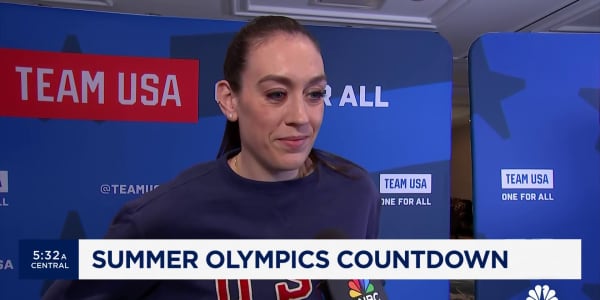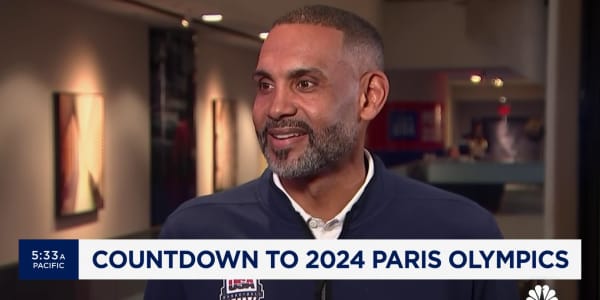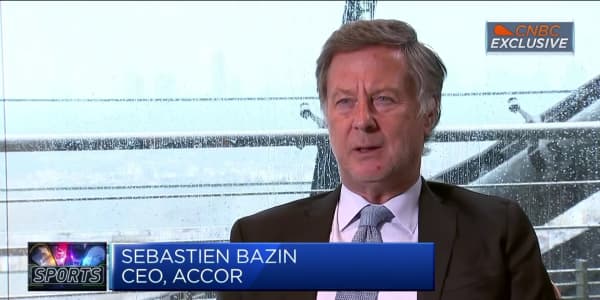In one of the sharpest expressions yet of American worries about possible terrorist threats to the Sochi Olympics, a key lawmaker in Congress said on Sunday that he was "very concerned" about security preparations there.
But in a separate interview on Sunday, President Vladimir V. Putin of Russia said that the nation would "do whatever it takes" to protect the thousands of visitors arriving soon for the Winter Games. And Mr. Putin reiterated that Russia would welcome athletes and visitors of any sexual orientation, despite laws in his country that are hostile to gay men and lesbians.
The congressman, Representative Mike Rogers, Republican of Michigan and the chairman of the House Intelligence Committee, said that American officials working with Russians ahead of the Games had "found a departure of cooperation that is very concerning."
More from NYT:
- Russia trains all eyes on Sochi
- Russian forces kill 7 suspected of an attack
- Congressional leaders suggest earlier Snowden link to Russia
In particular, Mr. Rogers said on the CNN program "State of the Union," "they're not giving us the full story about, what are the threat streams, who do we need to worry about, are those groups — the terrorist groups who have had some success — are they still plotting?"
Two suicide bombings in the central Russian city of Volgograd late last year claimed at least 34 lives, raising fears about the security of the Olympics in Sochi, which is about 400 miles to the southwest. Extremists affiliated with the militant leader Doku Umarov have vowed to disrupt the Olympics.
With an estimated 15,000 Americans planning to travel to Sochi for the Games, which begin Feb. 6, Mr. Rogers said his concerns would remain until Russian security services provided their "full cooperation."
(Read more: Winter Olympics inthe subtropics)
Another key member of Congress, Representative Michael T. McCaul, Republican of Texas and the chairman of the Homeland Security Committee, also expressed concerns about Sochi preparations, though he said he believed that "President Putin is taking this very seriously" and "taking all the precautions."
But given the recent deadly attacks by regional terrorist groups and the threats of more to come, Mr. McCaul said he believed that attacks somewhere in Russia during the Olympics were "likely."
With the Russians promising to surround Sochi with a "ring of steel," Mr. McCaul said on the ABC program "This Week," "I think it's more likely that the attacks would probably happen outside the perimeter, more soft targets, transportation modes, if you will."
(Read more: Putin loosensprotest ban in Sochi for the Olympics)
The congressman said he would travel to Sochi on Monday to confer with security officials, in part to study their plans for evacuations in the event of any attack.
Mr. Putin, in his taped interview, again sought to reassure foreign visitors that travel to Russia would be safe. "We will do whatever it takes" to ensure security, he told George Stephanopoulos of ABC, who was broadcasting from Sochi.
The Russian president said that a full panoply of security measures was being brought to bear not just in Sochi, but also elsewhere in Russia, adding, "If necessary, all those tools will be activated."
Mr. Putin said that if foreign athletes wanted to provide their own additional security, "there is nothing wrong with that," so long as they coordinated with the Russian authorities.
Several officials from the Federal Bureau of Investigation will be in Sochi to attend to the security of the American team.
(Watch more: Securing Sochi:Protecting the Olympics)
Amid complaints from foreign athletes and officials about Russia's nationwide ban last year on "propaganda of nontraditional sexual relations," which makes it a crime to mention homosexuality around minors, Mr. Putin insisted that visitors had nothing to fear.
"In this country, everybody is absolutely equal to anybody else, irrespective of one's religion, sex, ethnicity or sexual orientation," he said. "Everybody is equal. So no concerns exist for people who intend to come as athletes or visitors to the Olympics."
He had no comment about President Obama's decision not to attend the Sochi Games. Relations between the United States and Russia have been strained over many issues, including Russia's granting temporary asylum to Edward J. Snowden, the former National Security Agency contractor who is wanted by the American government for revealing state secrets; as well as over the antigay law.
"Russia does not criminally prosecute people for being gay, unlike in over one-third of the world's nations," Mr. Putin said. "Seventy of the world's nations consider homosexual behavior a crime."
—By NYT's Brian Knowlton




